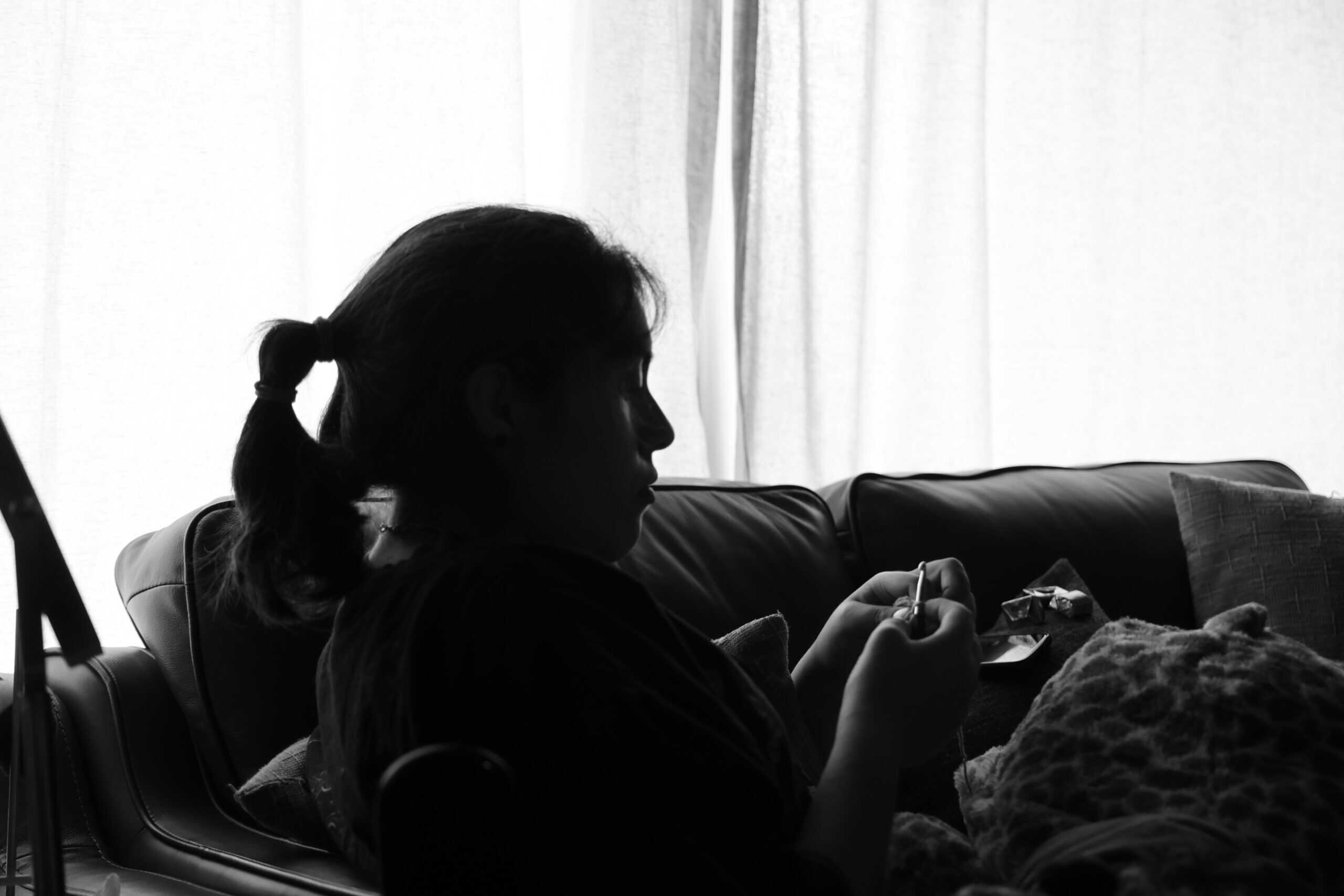16 Warning Signs of Parent Burnout Every Mom and Dad Should Watch For
Parenting is both a rewarding and demanding journey, often filled with emotional highs and lows. The relentless responsibilities can sometimes lead to parent burnout, a state of physical, emotional, and mental exhaustion. Recognizing the early signs of burnout is crucial for maintaining your well-being and fostering a harmonious family environment. By staying informed and proactive, parents can take steps to prevent burnout and seek support when needed.
1. Constant Exhaustion

When fatigue becomes a constant companion, even after a decent night’s sleep or moments of rest, it may signal more than ordinary tiredness. This persistent exhaustion can make it difficult to complete daily tasks, sap personal motivation, and cloud mental clarity. Parents experiencing this level of fatigue often find their patience with children wearing thin, leading to increased irritability.
2. Irritability Over Small Things

Parents experiencing burnout often find themselves reacting strongly to minor annoyances, such as spilled milk or the everyday noise of children playing. Unlike typical stress responses, this heightened irritability can result in frequent snapping, raised voices, or lingering frustration over trivial matters. These disproportionate reactions may be a sign that stress levels are becoming unmanageable. Recognizing this pattern is important for taking steps to restore balance.
3. Emotional Numbness

Emotional numbness involves feeling indifferent or unresponsive to both positive and negative experiences, such as not enjoying family outings or feeling unmoved by your child’s milestones. Unlike short-term mood swings, this persistent numbness leads to a deeper sense of detachment from loved ones and daily activities. Over time, parents may feel disconnected from their children and partners, making it harder to engage meaningfully.
4. Difficulty Concentrating

Burnout often clouds a parent’s ability to focus, leading to forgetfulness and trouble completing even simple tasks. You might find yourself missing appointments, losing track of daily routines, or struggling to follow conversations. This mental fog can impact everything from managing household responsibilities to engaging with your children. Persistent difficulty concentrating is a key sign that stress levels may be overwhelming.
5. Withdrawing from Social Activities

Feeling overwhelmed by parenting can cause parents to routinely decline invitations, avoid family gatherings, or distance themselves from friends. While occasional introversion is normal, persistent avoidance of social interactions is a warning sign of burnout. This ongoing withdrawal can lead to increased isolation and diminish your support network. Recognizing this shift is important for seeking help and staying connected.
6. Frequent Illness or Physical Complaints

Chronic stress from parenting can weaken the immune system, resulting in frequent headaches, stomach issues, or recurring colds. When these physical complaints become persistent rather than occasional, they may be signs of underlying burnout rather than isolated health incidents. Ignoring these symptoms can worsen both physical and emotional well-being. If you notice ongoing health issues, consider them a potential indicator of burnout.
7. Feeling Inadequate or Guilty

Burnout can bring on intense feelings of inadequacy, where parents believe they’re not meeting expectations or are falling short compared to others. This often leads to guilt over everyday decisions, such as allowing extra screen time or being unable to attend a school event. These persistent doubts and comparisons can negatively impact self-esteem and overall well-being. Recognizing these feelings as signs of burnout can help parents take steps toward self-compassion.
8. Loss of Interest in Parenting

One of the hallmarks of burnout is a noticeable loss of enthusiasm for activities that once felt rewarding, like reading bedtime stories, playing games, or organizing family outings. Unlike brief periods of boredom or fatigue, this persistent disinterest can linger for weeks or longer, making everyday parenting feel like a chore rather than a joy. If you find yourself consistently disengaged, it may be a sign of burnout.
9. Changes in Sleep Patterns

Ongoing stress from parenting can lead to noticeable changes in sleep, such as insomnia, restless nights, or even sleeping excessively to escape overwhelming feelings. Disrupted sleep can worsen irritability, reduce patience, and negatively affect both mood and overall well-being. Persistent sleep problems often indicate burnout rather than temporary stress. Addressing sleep issues is crucial for mental and physical health.
10. Increased Use of Coping Mechanisms

As burnout progresses, parents may start relying more heavily on coping mechanisms such as caffeine, alcohol, or comfort foods to manage daily stress. What starts as an occasional treat or relief can quickly turn into a regular pattern, as these substances provide temporary escape from overwhelming emotions. This escalation can mask deeper issues and potentially harm overall health. Recognizing increased dependency on these coping tools is crucial for addressing burnout.
11. Reduced Patience with Children

Burnout often leads to a significant decrease in patience, causing parents to react more harshly or quickly than before. Minor misbehaviors—like a spilled drink or a forgotten chore—may prompt arguments, raised voices, or stricter punishments that wouldn’t have occurred previously. This shift can strain the parent-child relationship and increase household tension. Recognizing these changes in your responses is an important step toward addressing burnout.
12. Neglecting Personal Needs

Parents experiencing burnout may begin skipping meals, neglecting personal hygiene, or giving up hobbies and self-care routines they once enjoyed. As energy and attention are directed solely toward the needs of the family, personal well-being is often sacrificed. This ongoing neglect can further drain emotional reserves and worsen feelings of exhaustion and disconnection. Recognizing the importance of self-care is vital for recovery.
13. Increased Conflict with Partner

Burnout can place significant strain on relationships, resulting in more frequent arguments, miscommunication, or ongoing tension between partners. While occasional disagreements are normal in any relationship, persistent conflict and irritability often signal deeper stress that needs to be addressed. This ongoing friction can erode emotional support and make parenting feel even more overwhelming.
14. Feeling Trapped or Hopeless

Burnout can cause parents to feel as if they are stuck in an unending cycle, with little hope for improvement or relief. This sense of hopelessness extends far beyond temporary frustration, becoming an ongoing and pervasive feeling that clouds daily life and future outlook. Unlike passing stress, these persistent emotions make it difficult to see solutions or envision positive changes. Recognizing these signs is crucial for seeking help.
15. Resentment Toward Family Responsibilities

As burnout deepens, parents may start to feel resentful about their daily duties, from managing household chores to caring for their children’s needs. This resentment can manifest as frustration over the never-ending to-do list or by comparing your workload to that of other parents or partners. Such feelings often lead to guilt and further emotional exhaustion. It’s important to acknowledge these emotions as signs of burnout.
16. Lack of Motivation to Seek Help

One of the most concerning signs of parental burnout is a reluctance to seek help or open up about struggles, even when it’s clear something is wrong. Feelings of stigma, shame, or self-judgment can prevent parents from reaching out to friends, family, or professionals, reinforcing isolation and deepening burnout. Overcoming these barriers is critical for recovery and well-being.
Conclusion

Recognizing the early warning signs of parent burnout is essential for protecting both your well-being and your family’s harmony. By reflecting honestly on your emotional and physical health, you can take steps to address challenges before they become overwhelming. Seeking support from loved ones or professionals is a sign of strength, not weakness. Remember, recovery is possible and hope is within reach.
.article-content-img img { width: 100% }




